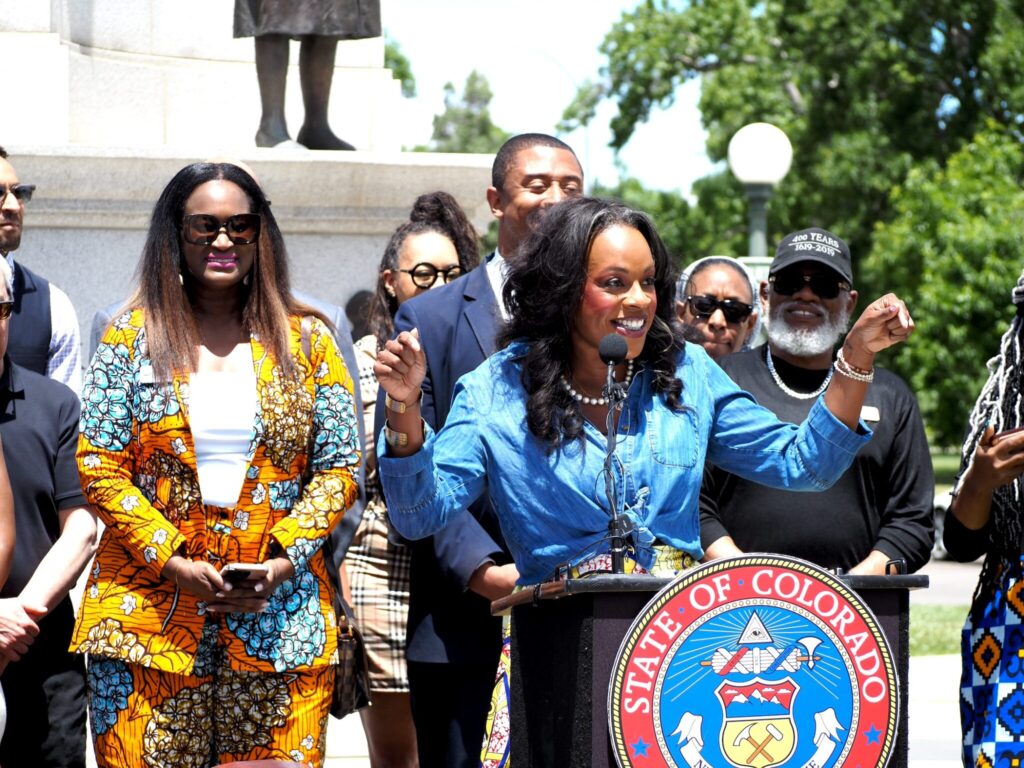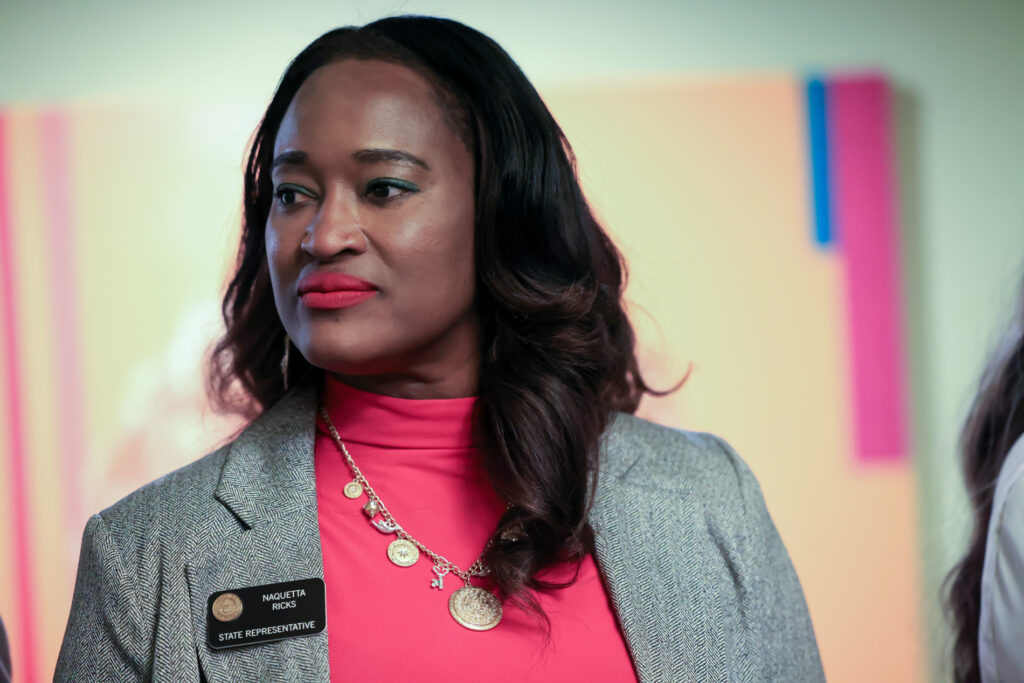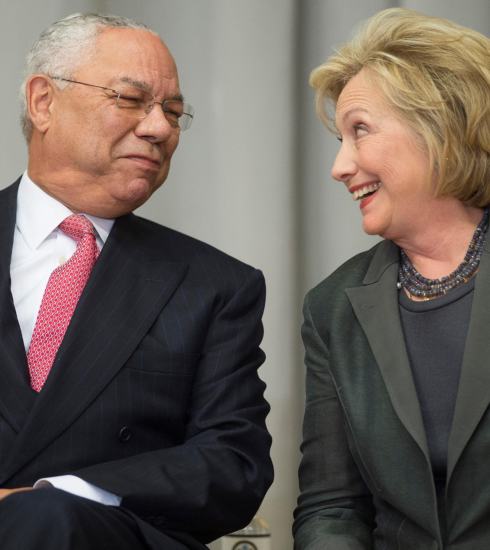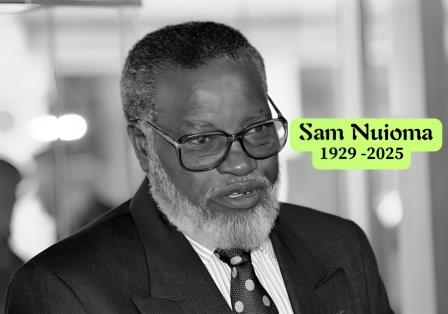Since June of 2014, Immigrant Heritage Month has given people across the United States an opportunity to annually explore their own heritage and celebrate the shared diversity that forms the unique story of America. In the spirit of celebrating that heritage and shared diversity, this piece celebrates someone who towed the path of Immigration and is today a role model, pillar of her community and an American success story.
Naquetta Ricks was 13 years old when three soldiers came to her family’s home in Monrovia, Liberia, searching for her mother’s fiancé, a government official.
“They held my mother at gunpoint for over two hours while my sister and I watched,” Ricks said, cringing at the memory. The soldiers found the official, Cyril A. Bright, hiding in the house and, after interrogating the couple in the driveway, tossed him into the back of a pickup truck.
“By the grace of God, really, they left my mom and they took off,” Ricks said.
Ricks’ family fled to the United States soon after and landed in Aurora, where today she is the Colorado state representative for House District 40. Her journey from Liberian refugee to being the first Black immigrant in the General Assembly was built on a successful career as a mortgage broker and a record of unwavering advocacy for Colorado immigrant communities.

Naquetta Ricks is the first African immigrant to be elected to the Colorado legislature in the United States. Credit: Rescue.org
Hers is one of the most diverse districts in a state where almost one in 10 residents are foreign-born — mostly from Latin America, with Asians and Africans following — and another one in 10 has an immigrant parent.
Ricks is the first Black immigrant elected to Colorado’s Statehouse. A co-founding president of the African Chamber of Commerce of Colorado, Ricks said her decision to seek public office was influenced by the struggles of “coming here as an immigrant.”
In previous interviews and sit downs she has granted to the media in the past, she said despite that her mom applied for political asylum, they were not able to prove their case that Liberia’s political turmoil posed personal risk if they were to return.
Rick’s family found a pathway to citizenship in 1986, when then-President Ronald Reagan signed the Immigration Reform and Control Act. The law not only tightened enforcement but also made unauthorized immigrants who had arrived before 1982 eligible for amnesty. Ricks became a U.S. citizen in her early 20s.
In June 2021, she stood by Governor Jared Polis as he signed legislation that she helped sponsor making Colorado the first U.S. state to establish a legal defense fund for low-income immigrants facing deportation.
“It will help immigrants like my family who came here, who did not have a lawyer,” Ricks said, recalling her late mother, Mariam Eudora Ash.
Ricks also successfully championed several other pieces of legislation aimed at accelerating the growth of small businesses, diversifying the ranks of Colorado’s teachers, and establishing a pilot project for renters to build credit history and improve access to loans. The measures’ passage was smoothed by Democrats’ control of both legislative chambers and the governorship.
Ricks has said she never set out to become a politician various times, but politics “does run in my blood” and extended family.
Her paternal grandfather, John Henry Ricks, had been a state representative in Liberia “before I was born,” she said. Her maternal step-grandfather, General Glakron Gblodell Jackson, was superintendent of Bomi County and was killed after ousted politician Charles Taylor launched a rebellion in late 1989 that brought years of civil war and a quarter-million deaths.
Ricks describes herself as “a person of faith,” baptized at 13 as an evangelical Christian in Liberia.

Naquetta Ricks looks on as Colorado Rep. Leslie Herod speaks at a bill signing ceremony where Governor Jared Polis signed into law a legislation to create a study examining racial disparities and the impact of systemic racism on Black Coloradans in Denver’s City Park recently. Credit: Senatedems.co
Ricks’ faith sustained her through two unsuccessful bids for public office — the University of Colorado Board of Regents in 2014, and the Aurora City Council in 2017 —– and when she ran for the Assembly seat. She was the underdog, challenging a Democrat who had party leaders’ support. But Ricks enlisted friends and associates to assist with campaign outreach. In the general election, she claimed 59% of the votes.
A handful of Ricks’ backers, mostly immigrants from Africa, gathered one June morning at Endless Grind, an Ethiopian-owned coffee shop in Ricks’ district. Among them were a Cameroon-born health worker who organized a COVID-19 vaccination clinic; a local businessman who promotes African culture; a Nigerian pastor; a Kenya-born policy analyst interning at Ricks’ office; and the U.S.-born executive director of the African Chamber of Commerce.
Ricks also continues advocating for entrepreneurs and small businesses through the African Chamber. She has brought investors to Liberia, hoping to create opportunities for them, as well as to incentivize people to create businesses and jobs in the West African country.
She has looked out for her home country in other ways. When the deadly Ebola virus swept into Liberia in 2014, Ricks was on almost all the radio stations soliciting materials. She was eventually able to send a container load of medical supplies and food items.

State Rep. Naquetta Ricks attends an event hosted by Colorado’s Black Democratic Legislative Caucus to provide a 2023 legislative preview at Cleo Parker Robinson in Denver, CO. Credit: Colorado Newsline
In Colorado, Ricks’ legislative efforts are getting recognition. The Colorado LGBTQ Chamber of Commerce in 2021 honored her as the Government Official of the Year for advocating “inclusion and diversity within the larger business community.” The state’s Independent Bankers Association and nonprofit housing group Habitat for Humanity both bestowed awards on her for championing the legislation for the pilot program to help renters improve credit scores.
Ricks credits her education for providing a foundation for her success. She graduated from Aurora Central High School, earned an accounting degree from Metropolitan State University of Denver and completed her executive MBA from the University of Colorado. Her work in business, advocacy and politics, she says, is predicated on one of her favorite quotes from late boxing champion Muhammad Ali: “Service to others is the rent you pay for your room here on Earth.”
Even though she has confessed that she never envisioned herself as a politician, she’s now devoted to empowering the many community members who have been inspired to pursue public service by her own journey to the Capitol.
“Every time I go out,” she says, “I remind other immigrants that their voices matter and that all politics are local.”






